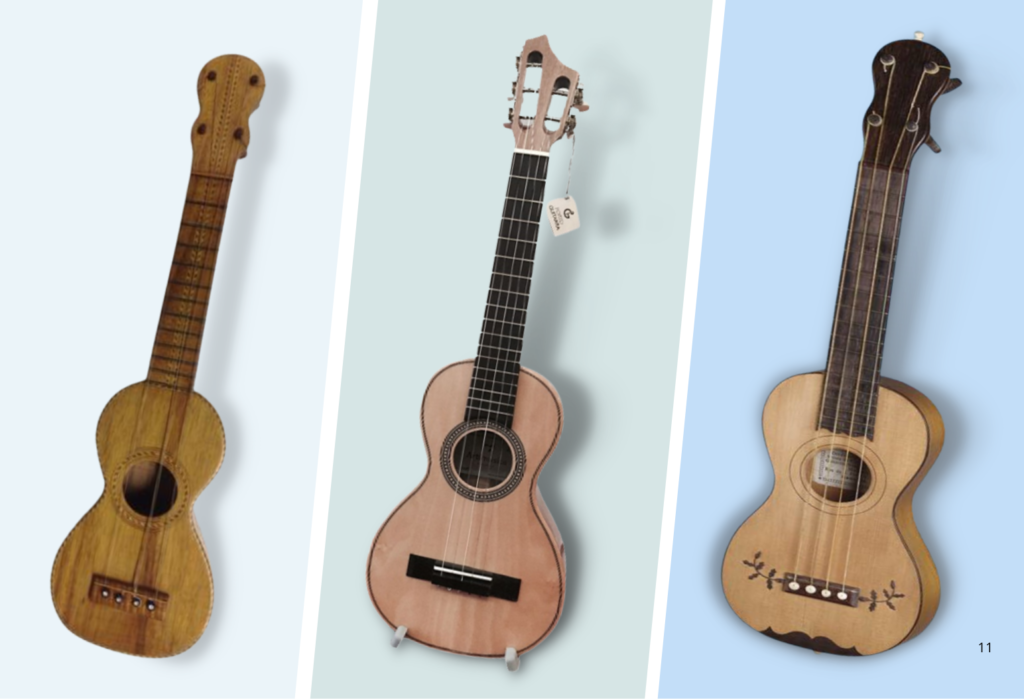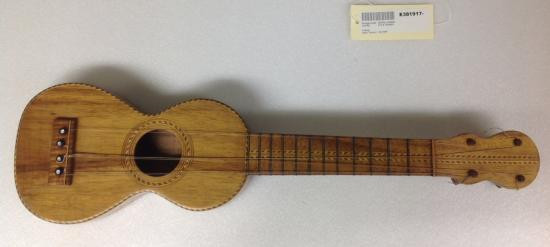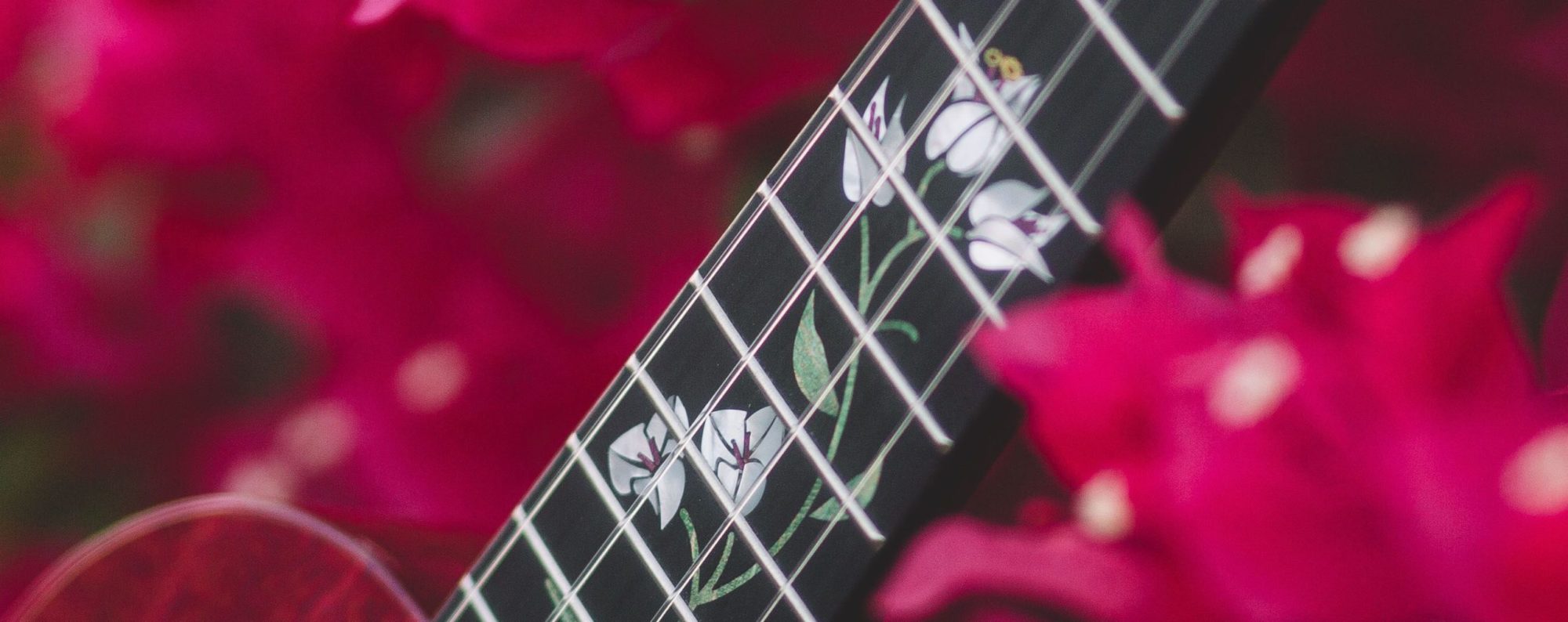by Abhay Koppar

Blue skies, shimmering sandy beaches, swaying palms, verdant green valleys, whispering waves and as the sun sets on the ocean, one hears the dulcet sound of Ukulele……. the tropical paradise in the middle of Pacific Ocean, the Hawaiian Islands.
Hawaii and Ukulele are so synonymous, they are inseparable. But was the Ukulele invented in Hawaii? Let’s trace the origins of the Ukulele together.
The story of Ukulele begins on the rugged island, Madeira, known for Madeira wine. The wine industry and furniture making were the backbone of Madeira’s economy. Unfortunately, by the mid-1800s after the collapse of the wine industry, many unemployed Madeirans left the island for greener pastures elsewhere.
The sugar industry was booming in the late 1800s in the Kingdom of Hawaii and there was an unprecedented labor shortage to run the plantations and factories. The word spread all over the world and reached Madeira. Willing men and women signed short-term contracts to work in the fields. They were provided a sailing passage and freedom after the completion of contract by the plantation owners. The immigrants and their families set sail to the Hawaiian Islands on the British clipper ship, SS Ravenscrag. After a grueling 4 month long journey, the exhausted Madeiran immigrants arrived in Honolulu on a sunny Saturday in August of 1879. As soon as they set their feet on the sand, a passenger, an accomplished musician, broke into a rambunctious song and dance playing a four-string musical instrument called machête The instrument was also known as “braguinha” or the “Machéte de Braga” named after the city in northern Portugal from where it originated, but widely strummed on streets in Funchal, the capital of Madeira. The Hawaiians were so enamored by the sound of the musical instrument, that on September 3, 1879, the Hawaiian Gazette wrote: “…Madeira Islanders recently arrived here have been delighting the people with nightly street concerts. The musicians are fine performers on their strange instruments, which are a kind of cross between a guitar and a banjo, but which produce very sweet music in the hands of the Portuguese minstrels.”
On that ship was a cabinet maker Miguel Nunes from Funchal, who worked as an indentured worker on the sugarcane fields. He gained freedom after fulfilling his contractual obligations in 1883 and in 1884 he opened a small furniture shop in Honolulu. The shop manufactured furniture, as well as musical instruments. How Nunes turned into a talented luthier remains a mystery to this day! Did he invent the Ukulele no one knows! But a decade after their arrival, Nunes or the musicians from Madeira, first introduced an instrument that was a hybrid of the machête and small Portuguese instrument, the five-string rajão. The petite size and body outline of the machête, and its 17-fret fingerboard provided the basis for the ukuleles’ overall shape and configuration. Instead of the machete’s D-G-B-D tuning, the ukulele employed the tuning of the rajão’s top four strings: G-C-E-A, minus its fifth string (a low D)! Viola! Ukulele was born.

But how did the instrument get its name Ukulele? ‘Uku with the ‘okina (the punctuation mark that looks like a backwards apostrophe) means flea. Lele means to jump. Jumping fleas! Perhaps it comes from the fact that Ukulele players jump fast across the fretboard and it resembles jumping fleas!The other comes from Queen Lili’uokalani who interpreted ‘Uku poetically as “gift” and Ukulele as a “gift from far away”. The new musical instrument received patronage from the Hawaiian Royal family: King David Kalakaua, Hawaii’s last king, his Queen Emma, and the future Queen Lili’uokalani. They were all accomplished musicians and learned to play Ukulele themselves. In fact, Ukulele was the national instrument of the Kingdom of Hawaii and always featured in the royal events and traditional luas.
Miguel Nunes continued to thrive and taught the art of ukulele making to numerous craftsmen, including his son Leonardo. One of his well-known apprentices, Samuel Kamaka, started his own shop in 1916 in Honolulu. Nearly 100 years later, the Kamaka Ukulele and Guitar Works proudly carries on the legacy of Ukulele making, an instrument that changed the music in Hawaii. After a decline in interest to play Ukulele in mainstream music, it has once again regained popularity in the last decade, and it continues to grow.
Ukulele is truly a gift that keeps giving.

